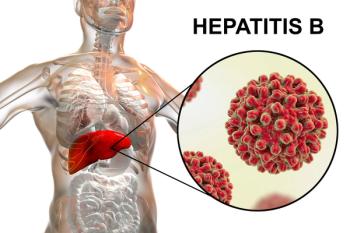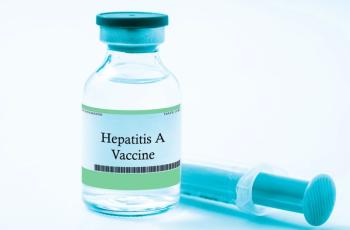
Hepatitis C Guidelines Get an Update
The update recommends a simplified hepatitis C treatment for people with HIV.
As hepatitis C virus (HCV) therapies continue to evolve, it’s critical that physicians stay abreast of the evidence-based changes.
In May, the HCV Guidance Panel, a collaboration between Infectious Disease Society of America (IDSA) and the American Association for the Study of Liver Disease, published the first update to its guidelines since 2020. The guidance was published in the journal Clinical Infectious Diseases.
The co-chairs of the panel,
“This is the reason we wanted to highlight the importance of universal HCV screening with this update — to make sure that this recommendation was again underscored so that we can increase HCV screening rates to above and beyond pre-pandemic levels,” the co-chairs said, referencing told the 2020 recommendation by the U.S. Preventative Service for the implementation of universal screening for HCV.
The panel also updated the guidance for people with HIV, moving to a recommendation for simplified HCV treatment. The decision came after
“In this study, 42% (166 of 399) of participants were people with HIV, and the overall sustained virological response rate at 12 weeks was 95%, with no difference in sustained virological response rates between those with and without HIV,” the co-chairs said in the Q&A. “The study suggested that this simplified approach could also be utilized in those with HIV.”
The panel also issued new guidance on Incomplete adherence by patients, which occurs in 11% to 40% of people being treated. The co-chairs said the panel considered the timing, duration, and patient factors in recommending whether to continue with the original number of doses or to extend therapy.
“In general, those with harder to treat conditions (HCV genotype 3 or cirrhosis) are recommended to extend therapy by an additional four weeks if more than eight days of therapy are missed and HCV RNA is undetectable when assessed at the time of incomplete adherence,” Bhattacharya and Re said.
The panel found that clinical and real-world data offer strong safety and efficacy evidence of HCV direct-acting antiviral (DAA) treatments for patients with solid organ transplantation, they noted Real-world and observational studies of DAA treatments in liver, kidney, or dual liver and kidney transplant cases reported a cure rate of 94% in patients treated with ledipasvir/sofosbuvir, according to the co-chairs.
With as many as 34.6% of incarcerated people HCV positive, the guideline writers recommended that jails and prisons should implement “opt-out HCV testing consisting of HCV antibody testing followed by confirmatory HCV RNA testing if antibody-positive.”
The panel recommended that jailed people who are chronically infected should receive counseling and be linked to follow-up community health care for evaluation and treatment upon release. Those incarcerated longer should receive a course of HCV therapy.
“Treatment for chronic HCV infection is feasible within jail and prison settings and would aid in the HCV elimination effort,” Bhattacharya and Re wrote.
Newsletter
Get the latest industry news, event updates, and more from Managed healthcare Executive.























